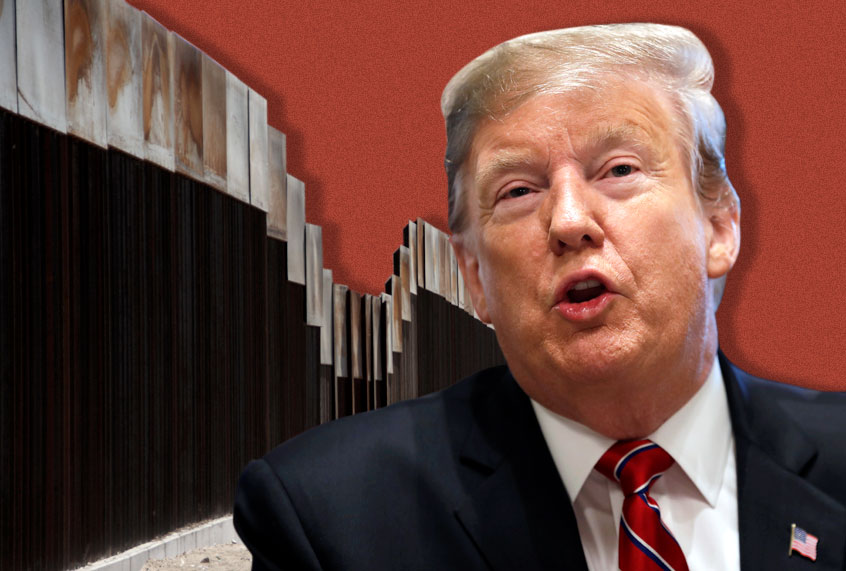Donald Trump faces the first real pushback of his presidency from congressional Republicans, whose apparent desire to avoid new tariffs on Mexican goods could ultimately cost the commander-in-chief his coveted border wall.
Congressional Republicans are weighing the option of voting to block Trump’s recently-announced tariffs on Mexico, which he is threatening to implement unless the Mexican government stops all illegal immigration into the country. Trump has vowed to implement a 5 percent tariff on all Mexican goods June 10, which could subsequently increase by 5 percent each month until October.
Since this would effectively serve as a tax on both businesses and consumers in the U.S., Republican lawmakers, who have thus far been noticeably unwilling to stand up to the president on a number of issues, have openly begun to grumble that they may need to draw a line — or else potentially lose the support of their party’s fervent anti-tax base.
Concerns that Trump’s planned tariffs could scuttle an impending trade deal, which the administration has been negotiating with Canada and Mexico, are front and center. After spending much of the 2016 presidential campaign denouncing the North American Free Trade Agreement (NAFTA), Trump has been working to pass the United States-Mexico-Canada Agreement (USMCA) as an alternative.
“I think this calls into question our ability to pass the USMCA, much less get it passed by Canada and by Mexico,” Sen. John Cornyn, R-Texas, told reporters Monday. “And so we need to put our heads together and try to come up with a solution.”
Two of Cornyn’s colleagues who also expressed their displeasure with the tariffs were Sen. Joni Ernst, D-Iowa, and Sen. Rand Paul, R-Ky. As Politico reported:
Sen. Joni Ernst (R-Iowa), who spoke with Trump by phone on Friday, said she emphasized to the president that Republicans should focus on approving the new North American trade deal and then shift separately to the situation on the border. But Trump was undeterred, she said. “He’s a tariff guy.”
“I’m not pleased,” Ernst said, predicting the party would concentrate on trying to sway Trump in the coming week. “Hopefully he’ll be receptive. But right now he’s not that receptive.”
Few Republicans offered much support for the move on Monday evening, according to interviews with a half-dozen GOP senators.
“I’m concerned both with China and Mexico,” said Sen. Rand Paul (R-Ky.), a close Trump ally. “Worldwide tariffs are what led to the exacerbation of the Great Depression . . . Tariffs are a bad idea. Interruption of trade is a bad idea.”
During his state visit to London this week, Trump responded to reports about Republicans possibly scuttling his tariff threat by telling the press, “I don’t think they will do that. I think if they do, it’s foolish.”
What is one possible ramification of the GOP’s efforts, according to the Post? It could thwart the president’s ability to build the southern border wall, which he has long promised to construct on the campaign trail and at his “Make America Great Again” rallies. Trump’s means to impose his threatened tariffs on Mexico hinges on his declaration of a national emergency at the border with Mexico. If Congress passes a resolution of disapproval of his tariffs, it could override Trump’s legal rationale for building his border wall while simultaneously staving off his tariffs.
This is not the first time Republicans in Congress have attempted to curtail the president’s ability to implement tariffs, with Republicans like former Sen. Bob Corker of Tennessee taking a stand against Trump’s protectionist policies last year. By contrast, Peter Navarro, the director of the White House National Trade Council, defended the president’s trade policies last year in USA Today:
No president has done more to defend the American manufacturing base from unfair trade practices than Donald J. Trump. What may surprise even his critics is that no president — since Lyndon B. Johnson declared a “war on poverty” — has done more to lift the prospects of low- and moderate-income families than President Trump.


